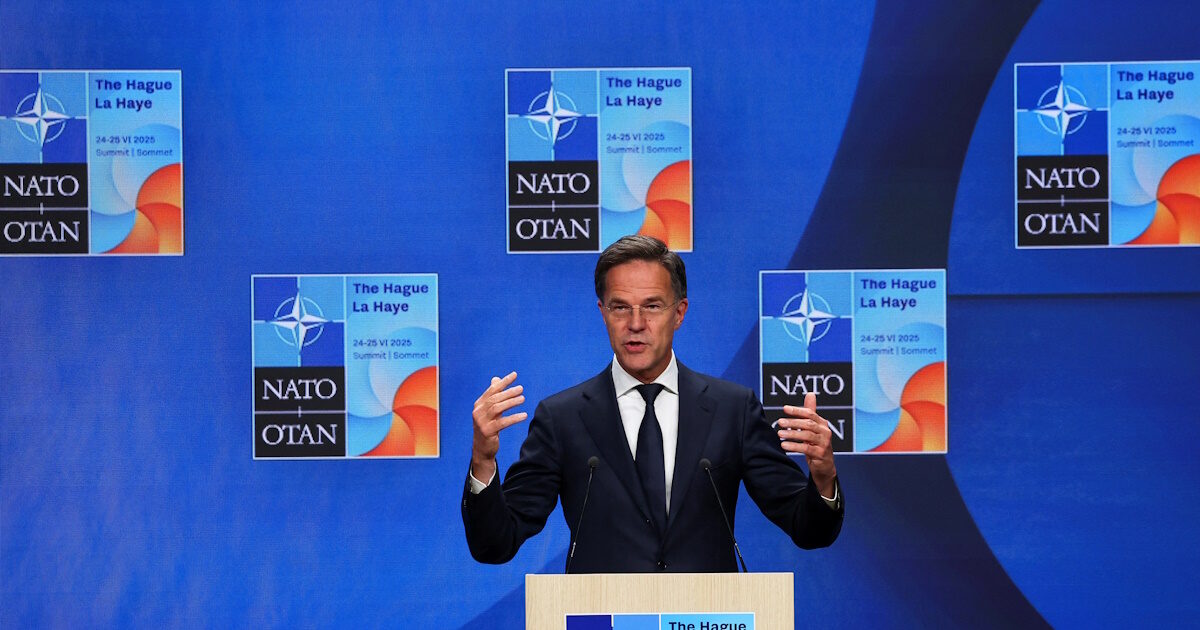A new budgetary and economic landscape in Europe opens after the announcement of the agreement at its two -day summit NATO (24 – 25 June 2025, Hague) to achieve expenditure for the defense its members – 5% of GDP by 2035.
It is recalled that from 2014 to this year, the minimum state -of -the -art defense for each NATO member was 2% of GDP.
Consequently, under the Hague Agreement, this ceiling is more than doubled, as it now stands from 2% to 5% of GDP.
It is noted that the previous ceiling, that is, 2%, was a horizontal, that is, it concerned all NATO members – but it was not compulsory (in the sense that there were no specific clauses for countries that did not reach it and they were not … few), and it was not a time.
This “relaxation” in terms of the implementation of the ceiling is now overturned: Each year NATO member states will speak (to the administration of the North – Atlantic Alliance) about whether and to what extent they approach its 5%target.
It also sets an intermediate milestone by 2035, and this is 2029, that is, four years from today, and we have to see in the final agreed, though which clarification of the march to 5% will be set.
For those NATO countries that have small budgets and find it difficult to find resources for the supply of new weapons systems, a window of support has been left from other countries with larger budgets and achievement of 5% at a “collective” level of NATO (as a percentage of the sum of GDPs).
As far as Greece is concerned, it starts with a relative strong starting point for the rate of defense costs, as it is 2.5% of GDP.
Also, in April 2025, the government announced a new equipment program of over € 25 billion by 2037.
Reduce the above additional defense expenditure on average each year, taking into account the expected GDP increase each year, the increase in defense spending – as a percentage of GDP – is very small and in any case far enough from 5% of GDP.
This means that Greece should increase its defense spending above the level it had calculated on the basis of the new equipment program in the next decade, ie 2035.
To do this, he will have to find the relevant resources with only “ally” the EU, which has decided, since last March, to activate escape clauses from the EU Stability Pact for the next 4 years, to increase defense spending by up to 1.5% of the EUR 150%, from which low -profile loans could be given to the member states.
In other words, EU decisions give part (for only 1.5% of GDP) and a relative short (for 4 years and not for … always) “grace period” for Greece -and other countries of the Union.
The increase in defense spending in Greece must not only double as a percentage of GDP (from 2.5% to 5%) to 2035, but also remain permanently at 5% and after 2035!
The question that arises for Greece, but also for the whole EU, is where they will find the financial resources for permanent more than twice the defense costs.
The biggest problem for countries, with high public debt, with Greece being the first of them despite the extremely positive fiscal performance in recent years.
The BoG has already warned that in order not to increase public debt, either tax revenue or cuts will have to be increased.
NATO Secretary -General Mark Rutte himself has proposed to the countries of the Alliance Cuts in Health and Pensions.
Until the NATO summit, the government had moved to the now -fiscal policy pattern: We are increasing the revenue of tax evasion in order to repay public debt as soon as possible and to return to society (primarily through the reduction of direct taxes).
The 5% defense of defense spending is in the wedge of the Greek government’s fiscal policy and directly disputes either the more premature repayment of debt, or the scope of the return of the “surplus” of growth, or both.
What the Government will choose to do to tackle the new obligations he has undertaken at the NATO summit remains to be seen at the level of fiscal policy.
What is certain, however, seems to be that the increase in defense spending -unlike what is expected to occur in other European countries such as Germany -can contribute to the development of the country (as the overwhelmingly larger portion of defensive orders will concern their foreign countries) and even less than foreign countries). thus contributing to the financing of the (permanent) target of 5%.
Commonly, whether or not any government in Greece, it seems that it should turn more towards the expenditure and lending (community or national) in order to raise the necessary financing resources to conquer the defense capacity it has agreed on NATO.
And all this, provided that the US will not begin to reduce their presence, at a military level, in Europe. Because if they start to reduce it, then we can see the ceiling of defense spending increasing above 5%.
